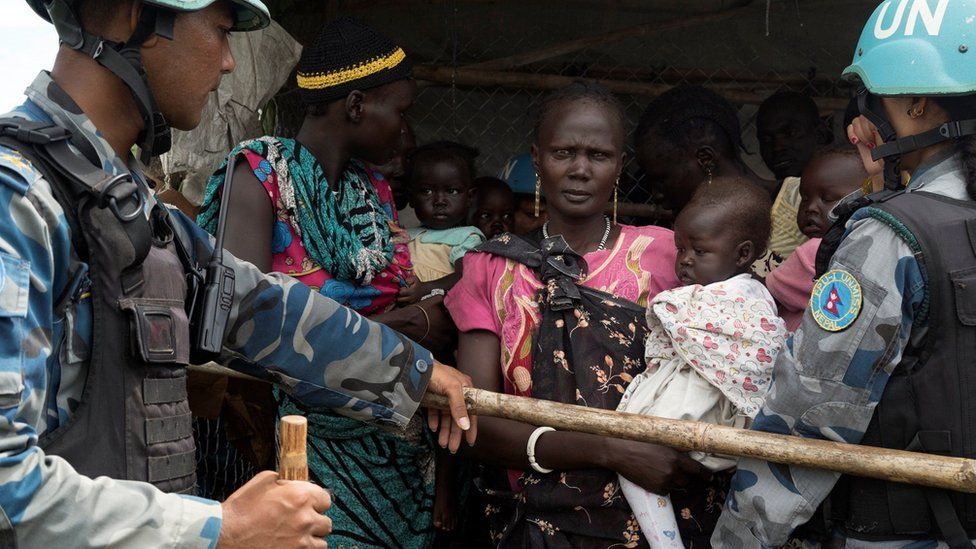South Sudan to get new international peacekeeping force
- Published

South Sudan's government has agreed to let in a new international protection force to try to save a peace deal.
Ethnic clashes last month left at least 300 people dead and threatened to revive a civil war that has killed tens of thousands.
A 12,000-strong UN mission in South Sudan was unable to prevent attacks.
The announcement was made by the East African regional body, Igad, and confirmed by South Sudan cabinet minister Dr Martin Elia Lomuro.
President Salva Kiir had previously dismissed the idea of an additional force.
The proposal for a new unit in South Sudan was backed by the African Union and discussed at a meeting in Ethiopia of Igad - the Intergovernmental Authority on Development.
But much of the details of the force remain unclear.
Igad sources have suggested a new force should have a more far-reaching mandate than the existing peacekeeping mission.
But after the meeting, South Sudan's Minister of Cabinet Affairs Martin Elia Lomuro told the BBC further talks were needed to discuss the mandate, size and timeline for any force.
Correspondents say the group of soldiers from different African countries is likely to be modelled on a similar unit deployed in the Democratic Republic of Congo to combat rebels from the M23 group.
Last week, President Kiir removed Riek Machar as first vice-president, two weeks after the rival leaders' forces clashed in the capital.
The two had backed a peace deal signed in the wake of violence in recent years.
In the wake of the latest fighting, Mr Machar's spokesman told AFP news agency that "the only hope is a protection force".
The BBC's Emmanuel Igunza, reporting from the region, said it was also agreed at the Igad meeting that the newly appointed vice-president, Taban Deng, would step down from his position if Mr Machar agreed to return to Juba to rejoin the transitional government.
Mr Machar had previously said he would stay away unless a neutral African force was deployed there.
South Sudan became independent from Sudan in 2011 but its short history has been marred by civil war.